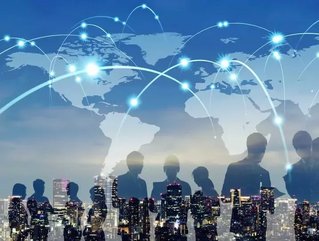McKinsey: Could The Climate Scupper Your Supply Chain?

If you could see the global supply chain network from the International Space Station, it’d look like the globe is wrapped in a spiders web ─ shimmering, interconnected lines of silk from point A to B all around the sphere. They’re complex, diverse, and exponentially larger than any sort of trade routes found in the history books. Our supply chains provide everything we need on a day to day basis, from food to medication, fuel to vehicles, and they support economies by transporting approximately $20 trillion worth of trade goods every year. Over the years, these supply chains have grown extremely sophisticated through the diversification of products provided and manufacturers needs to produce them, and leaders in the field have subsequently worked hard to ensure maxim efficiency and speed across the network.
COVID-19’s Unprecedented Warning
But as you know, COVID-19 caused a stir across supply chain networks, and countries found themselves floundering without access to their usual deliveries of certain foods and medications. The world has since rallied and found a new level of resilience in the wake of the pandemic, and we’re heading back to normality for the most part. What you might not know, however, is that supply chain leaders and trailblazers now want to explore the risk of acute weather conditions and how they may affect the supply chain too.
Climate change has been a significant talking point for a long time now, and it seems to be making complex weather systems slightly more volatile, leading to excessive numbers of extreme weather events across the globe. As we head into this new, unknown territory, manufacturers are acutely aware of the fact that their products and assets may be too weak to handle adverse weather systems; most things have been produced to serve their purpose, without the intention of withstanding the effects of climate change. That may have a devastating impact on supply chains if industries are caught off guard by challenging climates.
A Brief Example: Hurricanes
It’s already known that companies who are heavily dependent on Asian and Southeast Asian manufacturers for semiconductors found in smart devices, and cutting-edge chips used across the automotive industry, will likely find that, by 2040, hurricanes are two to four times more likely to disrupt their supply chain than they are today. You should note that a hurricane-based disruption to supply chains can last for several months, all damage considered. That’s a long time when you consider that the majority of technological products, including modern vehicles, are heavily reliant on the aforementioned products, produced in an increasingly-frequent hotspot for adverse weather conditions and hurricanes.
Global supply chains and the infrastructure that surrounds them were designed in a world where extreme weather conditions and pandemics weren’t at the forefront of leaders mind. “Things of the past”, you might say. But with COVID-19 and the growing concerns over climate change around the world, we can see that organisations must invest in adaptation, to ensure that when the world is struck again, supply chains do not falter and everything remains “business as usual”.
- How the C3 AI Supply Chain Suite Drives Increased ResilienceTechnology
- The Art of Supply Chain Planning with Gartner, SAP, KinaxisSupply Chain Risk Management
- Top 100 Women 2024: Stephanie Rankin Smith – No. 8Operations
- Why SAP Supply Chain Solutions Could Transform ManufacturingTechnology






